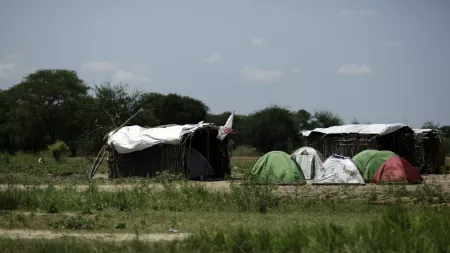The continued fighting in Sudan has led to increased fatalities and casualties, despite a temporary ceasefire on Sunday, 16th April 2023. The armed conflict, which is happening in and around residential areas, is worrying as civilians bear the brunt of the violence. CARE is deeply concerned about the safety and well-being of Sudanese communities – especially women and girls in the country. So far, reports indicate that there have been close to 200 deaths and 1,800 injuries. CARE condemns the ongoing fighting and is calling for a cessation of hostilities and prioritization of the protection of civilians.
The fighting is exacerbating an already difficult humanitarian situation in Sudan. Currently, over 11 million people can barely meet the minimum food requirements. Close to four million children under the age of five, as well as pregnant and lactating women (PLW), are acutely malnourished. Drought, floods, and disease outbreaks have contributed to the worsening humanitarian situation.
“Sudan is currently facing a humanitarian crisis with more than 15 million people in need of assistance,” said Kate Maina-Vorley, CARE International Regional Director for East and Central Africa. “We are deeply concerned about the ongoing armed conflict's impact on the lives of women and girls. Women and girls are disproportionately affected by violence especially when they are forced to flee from their homes and communities. This leaves them vulnerable to further harm. We call on all parties to ensure that all civilians, especially women, and girls, are protected from all forms of violence and exploitation.”
CARE's work in Sudan
CARE has been working in communities across Sudan since 1979. Between July to December 2022, CARE in Sudan reached 147,000 people with much-needed health services, 15,900 people with sexual reproductive health support, and 465,400 people with water, sanitation, and hygiene services.
CARE had suspended some of its operations in Sudan but will be opening 4 offices in six of the states we operate in to continue lifesaving operations in the sectors of nutrition, health water, sanitation, and hygiene.
CARE calls on all parties to work towards a lasting peace solution in Sudan for future generations. We stand with the Sudanese people, including women and girls, and will continue to advocate for their rights and well-being even after the conflict is resolved.
For media inquiries, please contact David Mutua, Regional Communications Advisor, East, Central, and Southern Africa via: [email protected].
Note to Editors
- CARE has been operating in Sudan since 1979, implementing humanitarian and development programs focused on women’s and girls’ empowerment, gender justice, humanitarian action, and resiliency.
- In Sudan, CARE supports communities with Health and Nutrition, inclusive governance, peacebuilding, livelihoods, water, sanitation and hygiene, gender justice, and food security.
